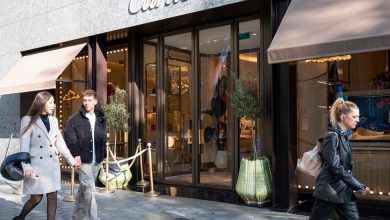A protest 56 years ago became an important part of Columbia’s culture.

Columbia University is no stranger to major student protests, and the uproar that unfolded at the institution on Thursday had echoes of a much bigger revolt in 1968 — another time of upheaval over a war many students deeply believed was immoral.
That year, in April, in the throes of the Vietnam War, Columbia and Barnard students seized five campus buildings, took a dean hostage and shut down the university.
By April 30, a week after the protest started, university officials cracked down.
At about 2 a.m., police began clearing students from Hamilton Hall “after entering the building through underground tunnels,” according to the student newspaper, The Columbia Daily Spectator. Minutes later, police entered Low Library, again through tunnels, removing occupying students by force.
By 4 a.m., they had cleared all buildings, resulting in more than 700 arrests — one of the largest mass detentions in New York City history — and 148 reports of injuries, the student newspaper reported. Officers trampled protesters, hit them with nightsticks, punched and kicked them and dragged them down stairs, according to a New York Times report.
Most of the injuries were cuts and bruises, relatively minor as compared to some of the brutal arrests of protesters at the height of antiwar and civil rights demonstrations at the time. The university also sustained some property damage, including smashed furniture, toppled shelves and broken windows.
In the end, the protesters won their goals of stopping the construction of a gym on public land in Morningside Park, cutting ties with a Pentagon institute doing research for the Vietnam War and gaining amnesty for demonstrators.
The protests would also lead to the early resignations of Columbia’s president, Grayson L. Kirk, and its provost, David B. Truman.
The fallout from the violence hurt the university’s reputation and led to reforms favoring student activism. Today the university touts its tradition of protest as part of its brand.
On Thursday, another Columbia president, Nemat Shafik, took what she called an “extraordinary step” and authorized the New York Police Department to clear out a student encampment on campus.




